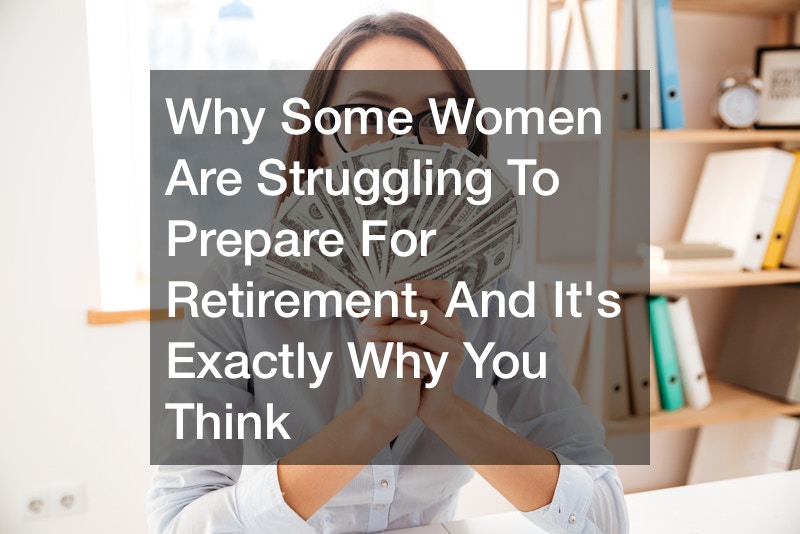
Why Some Women Are Struggling to Prepare for Retirement, and It’s Exactly Why You Think

The past decades have been about empowering women in the workplace, ensuring that they get paid the same as men for equal work. That doesn’t always happen, so some have ventured into their entrepreneurship. Many local woman owned businesses are thriving, but in this tricky economy, even the bosses are finding it hard to retire.

People often wonder: why to support women owned businesses? It’s not an obligation, but everyone knows there’s a particular prejudice due to men ruling the workforce for far longer. However, the wage disparity is still prevalent, even for women in business associations. Saving for retirement has become an impossibility for many, and it’s only due in part to the pandemic, recessions, and more. The fact is that women are still not making enough to support themselves for the rest of their lives.
A custom women owned business may be doing great, but there’s no predicting the future. It’s almost as if the industry doesn’t allow women to create a company with true longevity. That’s why the question “Why support women owned businesses?” is still on most people’s minds. Is society too biased still, or is there another problem? Are men having that same issue nowadays? Let’s learn more about the difficulty for women to retire.
It’s no secret that there’s a disparity between the wages that working men in America make compared with those of their female counterparts. This is problematic in a myriad of ways, but one of the most worrisome is the effects this has on women’s ability to adequately prepare for retirement.
The current state of retirement for any American isn’t necessarily a pretty picture. Two percent of retirees are currently looking for employment, 20% fewer employers are offering retirement options to their employees than they were 10 years ago, and one in four Americans thinks that they will have to work until the age of 80 to be able to retire comfortably. According to Forbes, research by the National Women’s Law Center, there were twice as many women over the age of 65 living in poverty than were men of the same age — 2.6 million compared to 1.3 million respectively.
A recent study performed by the Vanguard Center for Retirement Research reveals that women are more inclined to save money, but that men have higher account balances. The gender pay gap, adds the study, is one of the main reasons this is happening.
Forbes also indicates that working women in America are paid 78 cents for every dollar earned by men performing the same jobs; naturally, this has direct effects on how comfortably they will be able to retire.
If a female and a male worker who have the same job but different earnings each put in the same percent of their income into a 401(k) account, there will be a huge difference in the amount earned by the 401(k) over time. Additionally, since the amount of Social Security a person can receive in retirement depends on how much a person earns while working, women stand to lose here, too.
“The wage disparity can also translate into an investment disparity,” says Beth Kurth, President, Corporate Forum. “Women may choose to allocate less of their wages to investments, and this helps perpetuate their retirement gap. It is critically important to understand the long-term impact of lower wages in combination with fewer investment opportunities.”
What’s even more troubling about the gender pay gap is that there isn’t an obvious solution to eliminating it through legislation. The Paycheck Fairness Act, which President Obama has endorsed, would close the gender pay gap by making it illegal to pay male and female employees different wages for doing the same job. The legislation was blocked earlier this year.




